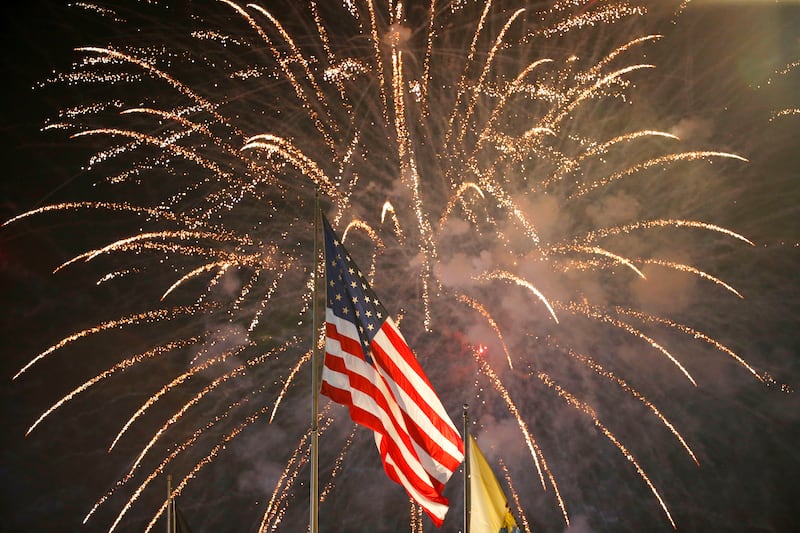“Divided,” “division,” “divisive” have become regularly deployed rhetorical descriptions of the nation by pundits and politicians. These words serve their purposes well, but do nothing to build the citizens or the country. Power appears to be derived by convincing people that they are too divided to solve any problem and therefore big government, big business or big media is required. Solutions to real issues are rarely found in such big places.
The answers can actually be seen through the lens of history with two simple yet transformative words — “united” and “states.” On Sept. 9, 1776, the Continental Congress made a small but significant shift in the name of the new nation as delegates replaced the phrase “United Colonies” with “United States”.
We have written extensively about the need for unity in order for the United States of America to flourish. We are equally committed to the notion of federalism and the need for states to govern closer to the people, free from the often heavy hand of national government.
The Bill of Rights Center defines federalism as a basic principles of the U.S. Constitution. “When the Framers created the Constitution they not only established a system of checks and balances to separate power within the national government, they also divided authority between state and national governments. This division creates clear spheres of responsibility for each level of government, promoting local control and preventing tyranny, or the concentration of power, in the hands of one body.”
Thomas Jefferson was correct in his assessment that, “The government closest to the people serves the people best.” Serving the people is what governing should be about.
The national government clearly has a role to play and must carry out things only such a government can do. Declaring war, signing treaties with other nations, minting currency, establishing post office and creating a system of immigration are among the duties of national government. Other activities were designed to be dealt with by state and local government and by the people themselves.
In order to form a more perfect union — indeed, the United States — it is time to recognize that politicians and governments rarely lead. Community and culture lead and the politicians typically follow. Solutions to the great challenges facing the world — poverty, injustice, addiction, education, upward mobility and every form of intolerance — are not likely to come from marbled halls, legislative bodies or government agencies.
Lasting, sustainable solutions come from states and local communities. In facing these significant issues, and many more, Dr. Marin Luther King Jr.’s question echoes across time and space, “Where do we go from here, chaos or community?” Rejecting chaos in favor of community-driven solutions should be celebrated and emulated.
The needs of the nation are many, far more than any government ever could provide. The answers will be found in communities and community-driven organizations. Ultimately, the solutions flow when people are seen as brothers and sisters with divine potential instead of problems for a state or nation to manage.
In a contentious election year, compounded by the coronavirus pandemic and civil unrest, each of us as free citizens are responsible for transcending division in order to promote unity. It is also time for citizens to look to community and states to solve problems, lift people and build bridges of understanding and cooperation.
With 244 years in the rearview mirror it is time for individuals, communities and the nation to live up to our name — the United States of America.

